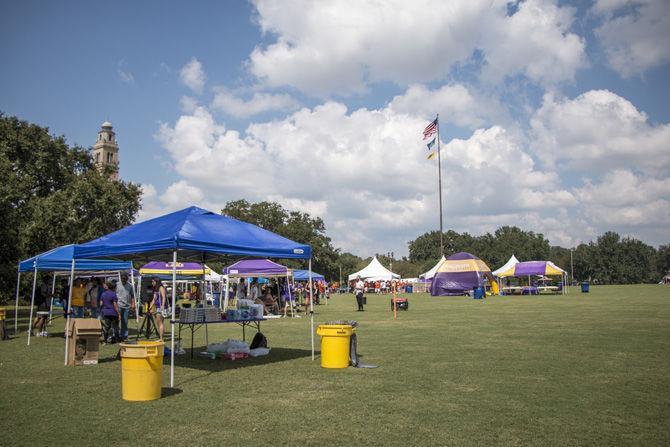The hazing-related death of University freshman pledge Maxwell Gruver was a wake-up call to the University to do something about hazing that goes on in fraternities. LSU President F. King Alexander recently approved new rules for Greek Life, including an alcohol ban of hard liquor at registered events and relocation of tailgating to fraternity houses. These rules make the University look like they’re making changes, but it doesn’t actually protect members of Greek Life.
Since Gruver’s death, the University hasn’t done enough to prevent another incident from happening. No one has died at a bar during a fraternity or sorority exchange. No one has died at a fraternity tailgate on the Parade Ground. Someone died in a fraternity house, which is where the University has moved tailgating.
The only way to make sure tailgating is safe is to have 20 or more police officers monitoring all fraternity houses on game day. Paying 20 or more police officers to monitor the fraternity houses, in addition to officers patrolling the rest of campus, is unrealistic.
Moving tailgating to the fraternity houses spreads tailgaters to many different and hard-to-monitor locations. When tailgating is on the Parade Ground, it is public and everyone is relatively safe. This new rule is putting students’ lives at risk, due to the lack of supervision and witnesses.
The alcohol ban for Greek events is only promoting pre- and post-gaming, or the act of drinking heavily before and after an event. This will lead to more binge drinking and drunk driving, which could cause more death. The ban only removes the guilt from the University’s shoulders and puts it on Greek Life. No one is being helped in this situation besides the University.
The problem in Greek Life is not the alcohol; it’s hazing. College students are adults and should be treated as such. If someone decides to drink heavily, that is their prerogative. However, that is not what happened to Gruver. He was forced to drink by powerful members of his fraternity.
The University doesn’t actively prevent “Pledge Season.” For most fraternities, “pledge season” includes dressing in khaki pants and a polo shirt for class, having cigarettes and a lighter on hand for an upperclassman and wearing suits on game day. These measures are only the public things the potential new members of fraternities have to endure. University students, professors and staff see this happening and no one does anything. This behavior only promotes more serious forms of hazing.
The University is, by default, promoting hazing by not at least stopping the public alienation of pledges that any person on campus can see. On their own, these measures aren’t harmful to the members in any way. However, these regulations can lead to the singling out of one member and, sometimes, forcing them to drink alcohol until they die.
To keep people safe, the University should pass stricter rules about hazing, not about alcohol and tailgating.
Ashlon Lusk is a 19-year-old mass communication freshman from Houston, Texas.





